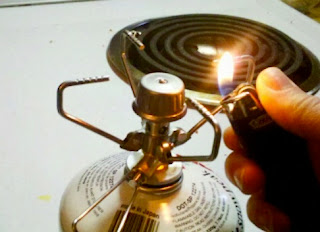You guys, bears are assholes.
 |
| Pictured: an asshole. |
I was going to write a long philosophical blog, ruminating on the difference between territorial wildlife and predatory wildlife; territorial wildlife wants you to go away, while predatory wildlife wants you in its belly. This is why I'm concerned about, but not really afraid of, the former, but rather nervous about the latter. But it turns out that bears take it to a whole nother level.
Bears are territorial, especially if you startle them or appear to threaten their cubs.
 |
| This woman likens herself to a total asshole. |
While this can be dangerous, it's mostly solved by being conscientious, making your presence obvious, and backing off if you encounter anything. Bears are also occasionally predatory. Luckily, predatory attacks on humans are exceptionally rare.
But here's what really elevates bears from annoying jerks to total and complete assholes: in addition to being the worst of both worlds of territorial and aggressive, they add a whole other category of crappyness: they're
pests.
Though bears could easily turn humans into food, they'd way rather skip the middleman and just eat our food instead. The vast majority of bear-human encounters in national parks happen not in some pristine wilderness, but near a thoughtlessly-kept parking lot, garbage bin, or campsite. They're the house mice of the outdoors. House mice that can eat your head.
I'd made all the recommended plans for this: bear-bagging food high in a tree, eliminating any possible scented toiletries, keeping the cooksite far from the tent for when hungry bears come a-snuffling. But it turns out that that isn't enough anymore. The national parks in California and the entire state of Washington have declared that all backcountry campers must carry a bear-proof food canister.
Bear canisters are a total pain in the ass. The way you make things bear-proof is basically the same way you make things nuclear-waste-proof; bury them in about half a foot of impenetrable materials on all sides. Bear canisters are enormous and rigid. (Though there are collapsible kevlar bear bags, they're not tough enough for CA or WA bear laws.) Most of them are a weird tapered shape which prevents bears from getting purchase on any edges, but makes them pains to pack. And most unforgivable for backpacking, they weigh a ton.
Well, most of them weigh a ton--there's one manufacturer that uses some space-age polycarbon that saves over a pound. Except that while most bear canisters average about $50, these go for over $200. While I know that once I'm on the trail beginning a 5-day trek with my entire survival on my back, I'll surely appreciate saving weight more than I will saving money. But it's still a big cliff to face. Stupid bears!
 |
| Asshole. |















